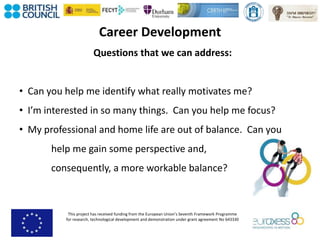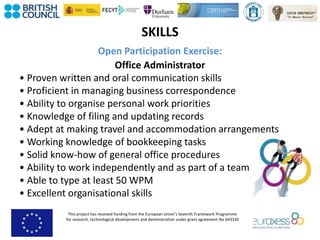This document discusses a career development process for researchers that involves exploring values, interests, personality traits, and skills through activities like psychometric testing and skills inventories. The goal is to help researchers better understand themselves, identify their career goals and interests, and develop a personalized action plan to achieve satisfying work opportunities. The process aims to enable researchers to make well-informed decisions about their career development and future plans.
































































































